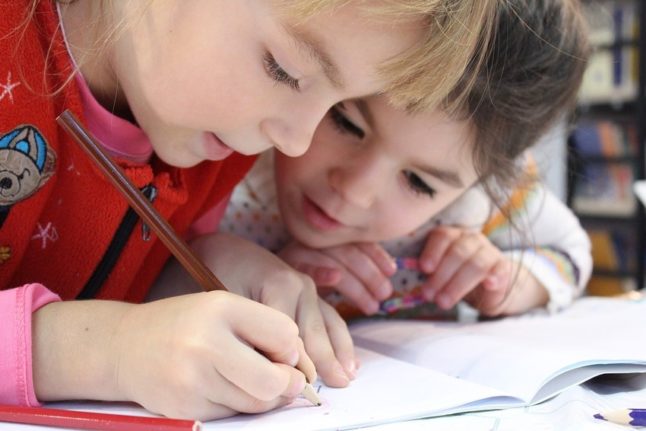The relationship between the Christian and Muslim worlds has long been significant. For millennia, they have traded and fought, and introduced new concepts and commodities to each other.
The humble apple strudel, for instance, was most likely brought to the Germanic world by the Ottomans. It's therefore not surprising that many European words, including those in German, can be traced back to Arabic.
Der Alkohol
Alkohol, and its English cognate alcohol, come from the Arabic Al-kohl. Al is the Arabic definite particle, meaning ‘the’. Many other European words, such as alchemy and alkali, include this prefix.
Kohl was a type of fine powder, generally used as an eye-shadow. Kohl has its origin is kahala, which means ‘to stain, or paint’. The 16th century alchemist Paracelsus used the term Alkohol to refer to fine powder, but later also used alcohol vini to signify spirits of wine. It was in the 18th century that the term began to be widely used to denote a distilled spirit.
Die Giraffe
The animal’s name entered into European languages through the Arabic term zarafa. Around the 1600s, the term Giraffe overtook the now obsolete Kamelparder, or 'camel leopard' in English. Although now classified as die Giraffe, the word was masculine until the 18th century.
Kaffee
Kaffee, like coffee, derives from the Turkish kahveh, which itself comes from the Arabic qahwah. One theory suggests that the term qahwah originally referred to wine, which was also earthy and dark in colour. Qahwah comes from the root qhh, which denotes something dark in colour.
READ ALSO: Kaffee und Kuchen: The history behind a very German tradition
Das Magazin
Magazin shares both senses of the English magazine. Via French and Italian, the word came into English and German from the Arabic Makhazin, meaning 'storehouse'. It was used to describe a storehouse where ammunition was kept, and it is from there that it was applied to the magazine of a gun.
In the sense of a journal or periodical, the term magazine was first used in England in 1793 with the publication of The Gentleman’s Magazine.
Die Matratze
The German term from mattress comes from the Arabic matrah via the Italian materasso. Matrah describes a place where things were thrown down. Sleeping on cushions or blankets was not common among Europeans, until the Crusades, when Europeans began to adopt the much more pleasurable experience of sleeping on soft surfaces from the Muslim world.
Der Talisman
The word Talisman comes from the Arabic tilasm, which conveys the notion of a magical image. Talismans often played a significant role in Arabic narratives, such as the magical sword of Zulfiqar which was frequently depicted on Ottoman flags.
The Arabic term itself is an alteration of the Ancient Greek télesma, meaning ‘payment’, via the Byzantine Greek term, which meant ‘religious rite’, or ‘completion’.
READ ALSO: 11 German words that come from the Greek language
Der Zucker
Meaning sugar, Zucker descends from the Arabic sukkar, which was brought to Europe by Arab traders. The term comes from the Sanskrit sharkara, which means 'grit, or gravel'.
Sugar cultivation started in Europe around the 9th century and was introduced by Arab rulers in Sicily and southern Spain; Zucker came into German via the Italian zucchero.



 Please whitelist us to continue reading.
Please whitelist us to continue reading.
Member comments